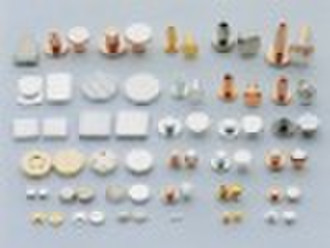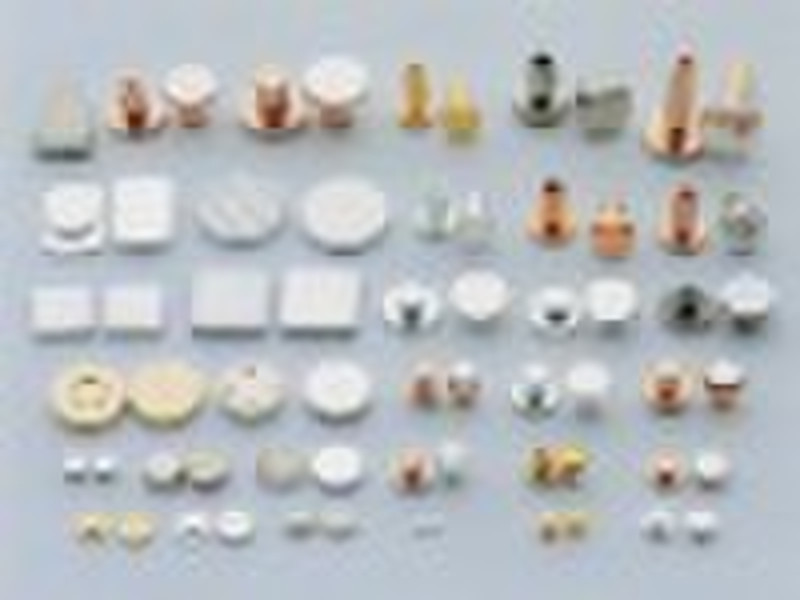trimetal contacts

Jenny Chen
联系人姓名
基本信息
| 出生地 | Guangdong China (Mainland) |
|---|
trimetal contacts;1: Face material: Solid or bimetal Ag,AgNi,AgCdO,AgSnO2,AgSnO2InO3,AgZnO,Base material: Cu, CuNi2: Normal: 1.0mm-10.0mm, According to customers drawing or sample3: silver thickness: 0.15mm-solid4: Normal: 0.6-4.0mmContact type: rivet/button. According to customers engineer drawingNormal: silver/Gold.Other: according to customers requirement ;Certificate: SGS, ISO9001-2000Silver rivet and Ag/Cu bimetal rivet: Pure silver has a high level of electrical and thermal conductivity, good plasticity and arc corrosion resistance, as well as a very low contact resistance. It is easily soldered and is the ideal contactor material for continuous, enclosed electric connectors. It is one of the most widely used materials in small capacity and low voltage electrical appliances, such as automatic control switches, thermostats, baking machines, oven, timers, thermal relays, and computers. AgCu rivet: This contact has good electrical conductivity and its surface is not liable to oxidization. The addition of 3 - 28% copper may remarkably improve the silver's flame resistance. Hence, copper contact material may be used in current strength up to 16A. The addition of copper, especially of high copper content, for example 10%, will greatly reduce material transferring during DC working conditions. It is widely used in AC contactors, relays, electric tool switches, buttons, timers, and other household electrical appliances.Fk Ag contact rivet: This fine crystal silver contains a 0.12% nickel additive and has a low contact resistance, which is similar to that of pure silver, without the variable switching times. Its fusion welding and flame resistance is slightly higher than that of pure silver, and under almost equal contact resistance, its strength and heat resistance are higher than that of a silver-copper composite contactor. It is suitable for various temperature adjustments of working current <10A.AgNi /Cu bimetal rivet: In low voltage engineering, this contact is widely used in AC switches as an electrical contact. Its advantages include that it may be directly soldered to contact bridges, without the need for additional solder layers, thus making manufacturing of contactor components simple and economical.
交货条款及包装
Packaging Detail: 500-20000pcs/packinner package: vacuum plastic bagoutside package: cartonpackages can be made to your requirements. Delivery Detail: within 7 days
端口: HongKong ,Shengzeng,Gaungzoung...
付款条款
Telegraphic transfer
-
支付方式
我们接受:









